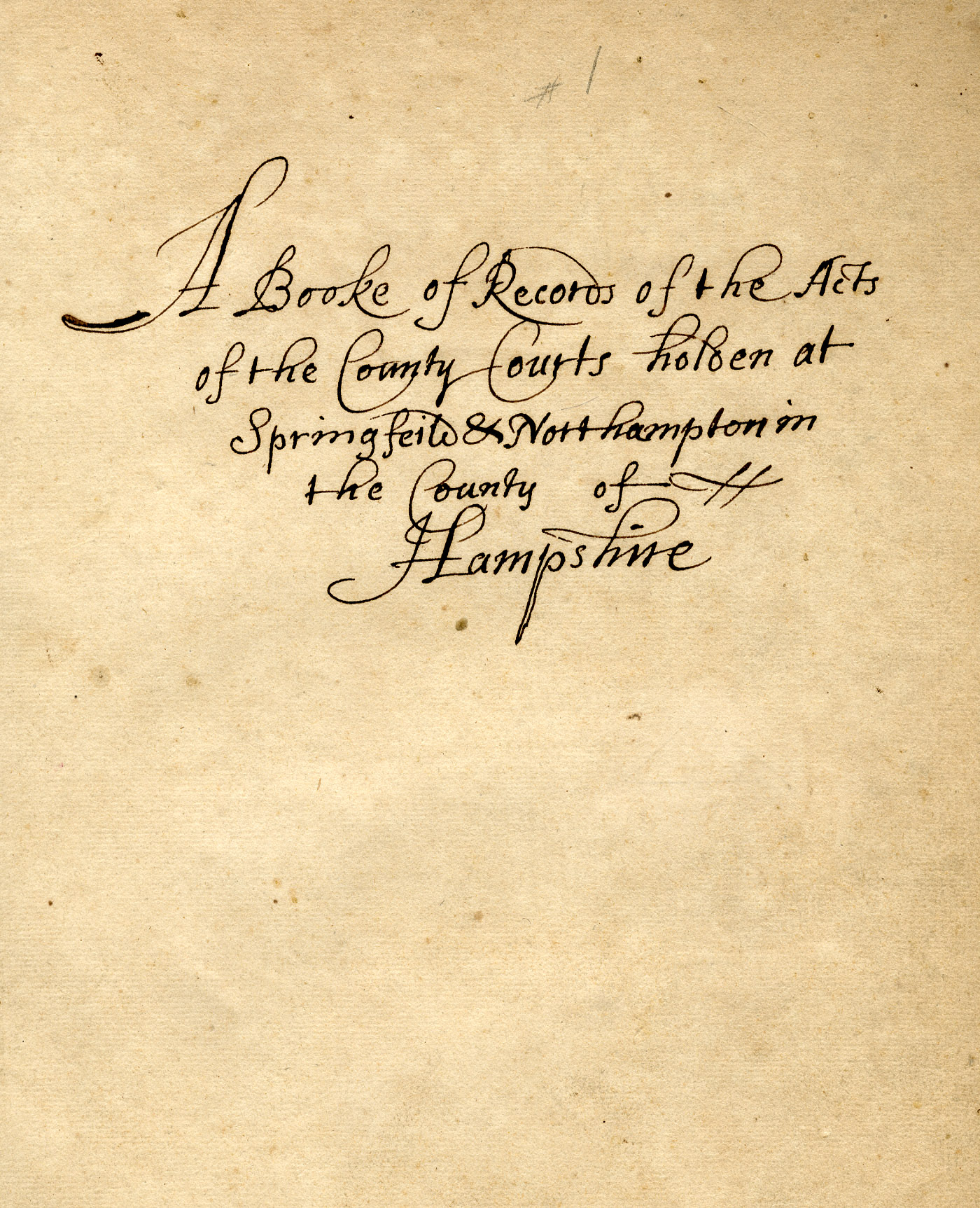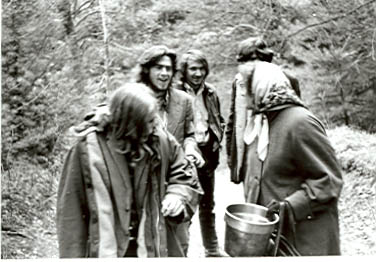Hadley Town Records
First settled in 1659, Hadley was officially incorporated two years later. Microfilm records of the town consist primarily of minutes of town meetings along with nineteenth-century transcriptions.
First settled in 1659, Hadley was officially incorporated two years later. Microfilm records of the town consist primarily of minutes of town meetings along with nineteenth-century transcriptions.
A local branch of the national political party, the Hadley Greens organize around the principles of environmentalism, social justice, and non-violence, along with a general opposition to corporate dominance of the political process.
This small collection contains bylaws of the Hadley Green Party, minutes of meetings (2003), materials on organizing, and an assortment of notes, newsletters, correspondence pertaining to salient issues in the 2004 election, a t-shirt, banner, and pinback buttons.
A local, grassroots organization, Hadley Neighbors for Sensible Development coalesced in the early 2000s to advocate for environmentally and socially responsible development in Hadley, Mass. Working through the town planning board and town meeting, the group successfully opposed the construction of Walmart Superstore in town and worked to mitigate the impact of Lowes and other big box stores along the Route 9 corridor.
A miscellaneous assortment of documents relating to work in town meeting and with the town planning board, the collection includes notes, newspaper clippings, and assorted background information.
Western Massachusetts political leader, publisher, and banker (1881-1960), trustee of the University of Massachusetts (1940-1956), and founder, editor and publisher of the Greenfield Recorder newspaper (1912-1928); political positions included State Representative (1909-1913), State Senator (1913-1915, 1923-1927), and State Treasurer (1929-1930); in 1934, was Republican candidate for Lieutenant Governor, and in 1936, candidate for Governor.
The Haigis collection includes scrapbooks (1903-1936), chiefly of clippings, together with speeches (1936), posters, badges, campaign material, and photographs, mainly from Haigis’s unsuccessful campaigns for lieutenant governor (1934) and governor (1936); and tape of an interview (1974) with Leverett Saltonstall about Haigis, conducted by Craig Wallwork.
Writer, editor, and educator, Anne Halley was born in Bremerhaven, Germany in 1928. A child during the Holocaust, she relocated with her family to Olean, New York during the late 1930s so that her father, who was Jewish, could resume his practice of medicine. Graduating from Wellesley and the University of Minnesota, Halley married a fellow writer and educator, Jules Chametzky, in 1958. Together they raised three sons in Amherst, Massachusetts where Chametzky was a professor of English at UMass and Halley taught and wrote. It was during the late 1960s through the 1970s that she produced the first two of her three published collections of poetry. The last was published in 2003 the year before she died from complications of multiple myeloma at the age of 75.
Drafts of published and unpublished short stories and poems comprise the bulk of this collection. Letters to and from Halley, in particular those that depict her education at Wellesley and her professional life during the 1960s-1980s, make up another significant portion of her papers. Publisher’s correspondence and a draft of Halley’s afterward document the Chametzkys effort to release a new edition of Mary Doyle Curran’s book, The Parish and the Hill, for which Halley and Chametzky oversaw the literary rights. Photographs of Halley’s childhood in Germany and New York as well as later photographs that illustrate the growth of her own family in Minnesota and Massachusetts offer a visual representation of her remarkable professional and pesonal life.
As a contributor to the Atlas of Massachusetts, Professor Joel Halpern collected data and articles in support of his essay published in the “Ethnic Groups” section. The collection consists primarily of drafts of his essay and research notes.
A private, non-profit corporation founded in 1965 in Northampton, Massachusetts to finance community action programs for eliminating poverty and assisting low income people. Programs included day care centers, Neighborhood Youth Corps, Summer Head Start, a drug addiction clinic at the jail, Legal Services, and the Foster Grandparent Program.
Records comprise bylaws and organizational charts, annual reports, board of directors minutes; administrative directors’ records, including correspondence with the federal agencies and state agencies granting funds, grant applications and awards, program plans, financial and legal documents, personnel records and staff training directives; the agency newsletter County Voice, Noticero Latina; and newsclippings about welfare programs.
Nonprofit organization with representatives from sixteen Western Massachusetts towns that raised funds for and distributed funds to local and national social service organizations in their communities. Records include minutes of the Board of Directors, Executive Committee, financial and other standing committees; annual reports, correspondence, ledgers, budget worksheets, agency reports, campaign materials, including solicitation lists and letters, campaign studies and reports; brochures and surveys; and printed materials and photographs.

The Hampshire Council of Governments is a voluntary association of cities and towns and the successor to the former government of Hampshire County, Massachusetts, that was abolished in 1999. A body politic and corporate, its charter ratified by Massachusetts General Law 34B, S20(b), the Council oversees roadways, the electricity supply, building inspection, tobacco control, cooperative purchasing, and other services for member communities.
The Hampshire Council collection contains a dense record of county-level governance in western Massachusetts from the colonial period through the mid-twentieth century with extensive documentation of the actions of the County Commissioners, and before them the Court of Common Pleas and Court of General Sessions. Rich in documenting the development of the transportation infrastructure of western Massachusetts, the collection offers detailed information associated with the planning and construction of highways, canals, ferries, and railroads, but the early records offer a broad perspective on the evolution of the legal and cultural environment, touching on issues from disorderly conduct (e.g., fornication, Sabbath breaking) to the settlement of estates, local governance, public works, and politics.

Daughter of a writer and diplomat, and graduate of Wellesley College, Beth Hapgood has been a spiritual seeker for much of her life. Her interests have led her to become an expert in graphology, a student in the Arcane School, an instructor at Greenfield Community College, and a lecturer on a variety of topics in spiritual growth. Beginning in the mid-1960s, Hapgood befriended Michael Metelica, the central figure in the Brotherhood of the Spirit (the largest commune in the eastern states during the early 1970s) as well as Elwood Babbitt, a trance medium, and remained close to both until their deaths.
The Hapgood Papers contain a wealth of material relating to the Brotherhood of the Spirit and the Renaissance Community, Metelica, Babbitt, and other of Hapgood’s varied interests, as well as 4.25 linear feet of material relating to the Hapgood family.